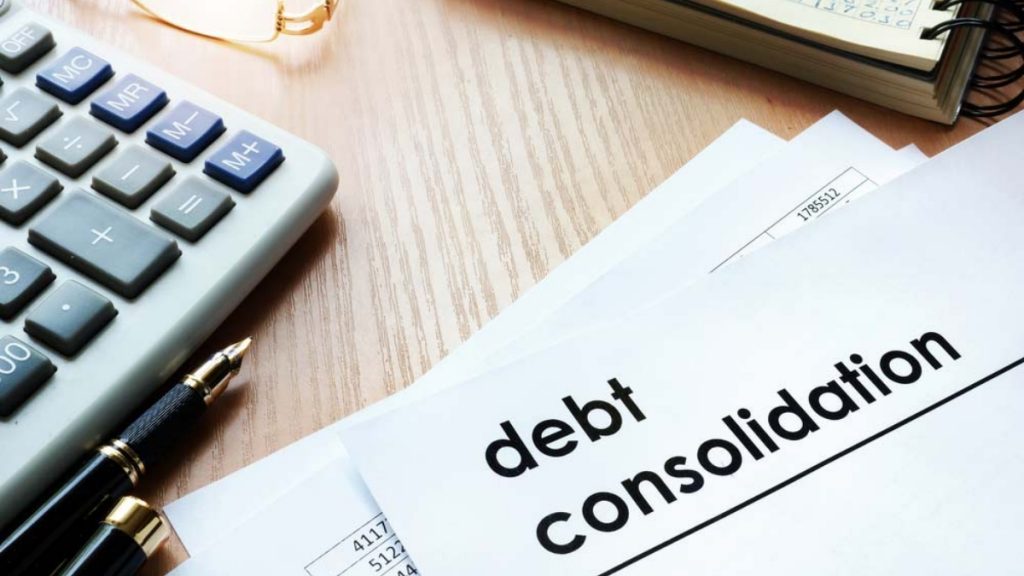Bill consolidation is a form of debt refinancing which involves taking out one loan to pay off multiple debts. The most common way to consolidate bills is by taking out a debt consolidation loan. However, there are other methods, such as balance transfer, debt settlement, home equity loan, or a debt management plan when looking for ways to get out of debt.
So, is bill consolidation smart?
Advantages of Bill Consolidation
Debt consolidation simply means taking out one huge loan to settle smaller ones, so let us look at some advantages of this.
1. Fixed Repayment Schedule
Using a personal loan to pay off debts means that you’ll be sure of the amount due each month and when the last payment will be. Having a fixed repayment schedule means that your payment and interest will remain the same for the term of the loan and there won’t be any unexpected fluctuation in the monthly debt payment.
2. Boosts Your Credit
Initially, bill consolidation may slightly lower your credit score however, over time it will likely improve your credit score, as it’ll be simpler to make payments on time. Ultimately, bill consolidation can improve credit score especially if you make on-time payments on the loan.
3. Lower Interest Rates
The average credit card rate is plus or minus 16 percent while the average personal loan rate is beneath 11 percent, which means that you’re likely to receive lower interests with bill consolidation.
4. Simplifies Finances
Consolidating your bills cuts down on having to worry about multiple due dates each month, as you’ll have only one payment to make. Also, the payment amount is the same each month, which means you’ll know the exact amount to put aside for payment. Debt consolidation simplifies budgeting and creates fewer chances of missing any payments.
5. Repay Your Debts Sooner
Debt consolidation might assist you in paying off your debts quicker and paying your debt quicker means that you may pay less overall interest. Paying off your debt sooner is also beneficial to you as you can then put money aside for other things.
Of course, there are pros and cons to every such solution.
Disadvantages of Debt Consolidation
Here are some disadvantages of debt consolidation.
1. Upfront Costs
Some debt consolidation loans have fees such as loan orientation fees, balance transfer fees, closing costs, and annual fees. It is wise to inquire about all fees beforehand. So make certain to do your research when considering debt consolidation and also make certain that you are aware of their full costs.
2. Higher Rate
There are many reasons why your debt consolidation could come with a higher rate, some of which are your current credit score, the loan amount, and the term of the loan. Debt consolidation doesn’t always reduce the interest rate on one’s debt
3. Doesn’t Change Bad Habits
Debt Consolidation does not solve financial problems, sure it can help you pay off your debt, but it does not alter one’s financial habits. The best way to do this is to be better disciplined financially.
4. Could Cost More
Missing even one monthly payment will mean paying a late fee, and “insufficient funds” may lead to your payment being returned. In turn, this may mean having to pay a returned payment fee. These fees can increase borrowing costs even more.
5. Credit Score Damage
It could also cause damage to your credit score and make it more difficult for you to obtain loans in the future. So always make sure you can afford the monthly payments before considering debt consolidation, as not fulfilling payments is detrimental.
Those are the pros and cons of debt consolidation.
You can learn even more about them at the Freedom Debt Relief web site.
Should You Consider Debt Consolidation?
You can figure this out by weighing the advantages and disadvantages and seeing whether you’ll be able to handle all the requirements of debt consolidation. A good candidate for bill consolidation will have the following attributes:
-A good credit score
-Prefers fixed payments
-Wants one monthly payment
-Affords to repay the loan
So, is bill consolidation smart? You certainly have enough information to make an informed decision. Consider your circumstances based upon the above and decide accordingly.




